Hollywood & Spine Archive: Paperback Writers
An overview of the novelization to A HARD DAY'S NIGHT, originally published in April 2022.
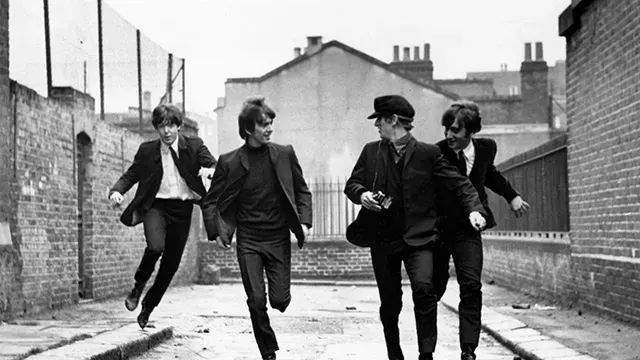
Hilariously, I timed the original publication of this look back at A Hard Day's Night with the release of Get Back - and now I'm reprinting it to time with the streaming debut of the original Let It Be film from 1970. I had and have every intention of also tackling the novelization to Help! someday, although I do prefer this to the other film, something I think my wife (a lifelong Beatles fan) and I disagree on. (Originally published 4/11/2022)
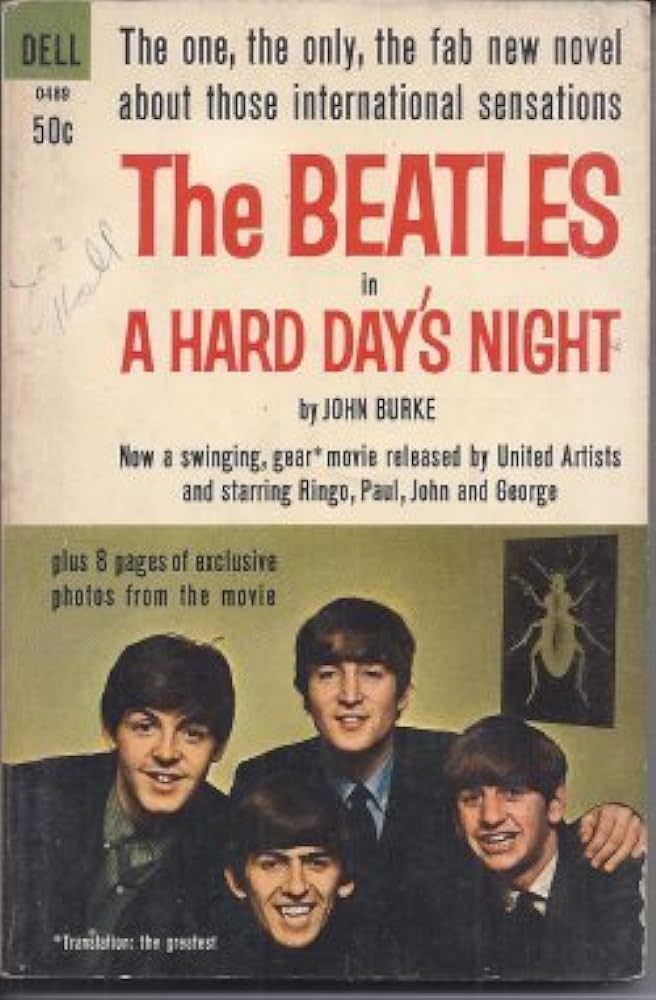
The Beatles in "A Hard Day's Night" by John Burke (based on the screenplay by Alun Owen) (Dell, 1964)
The pitch: A highly-stylized depiction of the life and work of John Lennon, Paul McCartney, George Harrison and Ringo Starr, tussling with fans, grandparents, policemen, and a looming live concert deadline.
The author: John Burke (1922-2011) was a steady hand in the field of British novelizations, including some Hammer horror collections and an adaptation of Chitty Chitty Bang Bang, itself conceived by another well-known British author, James Bond creator Ian Fleming. He also penned a trio of deeply-researched novels using an original character named Dr. Alex Caspian, an occultist/detective.
The lowdown: 2021's mammoth Beatles documentary Get Back - Peter Jackson's eight-hour restoration and reconstruction of footage used in Michael Lindsay-Hogg's Let It Be film - reminded us a lot of what we love about the Fab Four. We adore their lightning humor and unbelievable talent (watching McCartney massage some guitar noodles into a solid outline of "Get Back" in real time is unbelievable), and we learn just how tight (if certainly frayed) these band of brothers were when hunkering down behind the drafty walls of Twickenham Studios.
Seeing Get Back challenge the narrative around their twilight years as a group might make one hungry to see them on the way up, and A Hard Day's Night, released at the apex of Beatlemania in 1964 (and newly reissued as part of the Criterion Collection), certainly scratches that itch. Even as fiction, it illustrates what a one-in-a-billion group of lads they were: preternaturally talented and wildly unbothered with the ramifications of shifting popular culture along its fault lines. (The film's zippy dialogue and quirky gags exude shitposter energy long before the term was coined.)
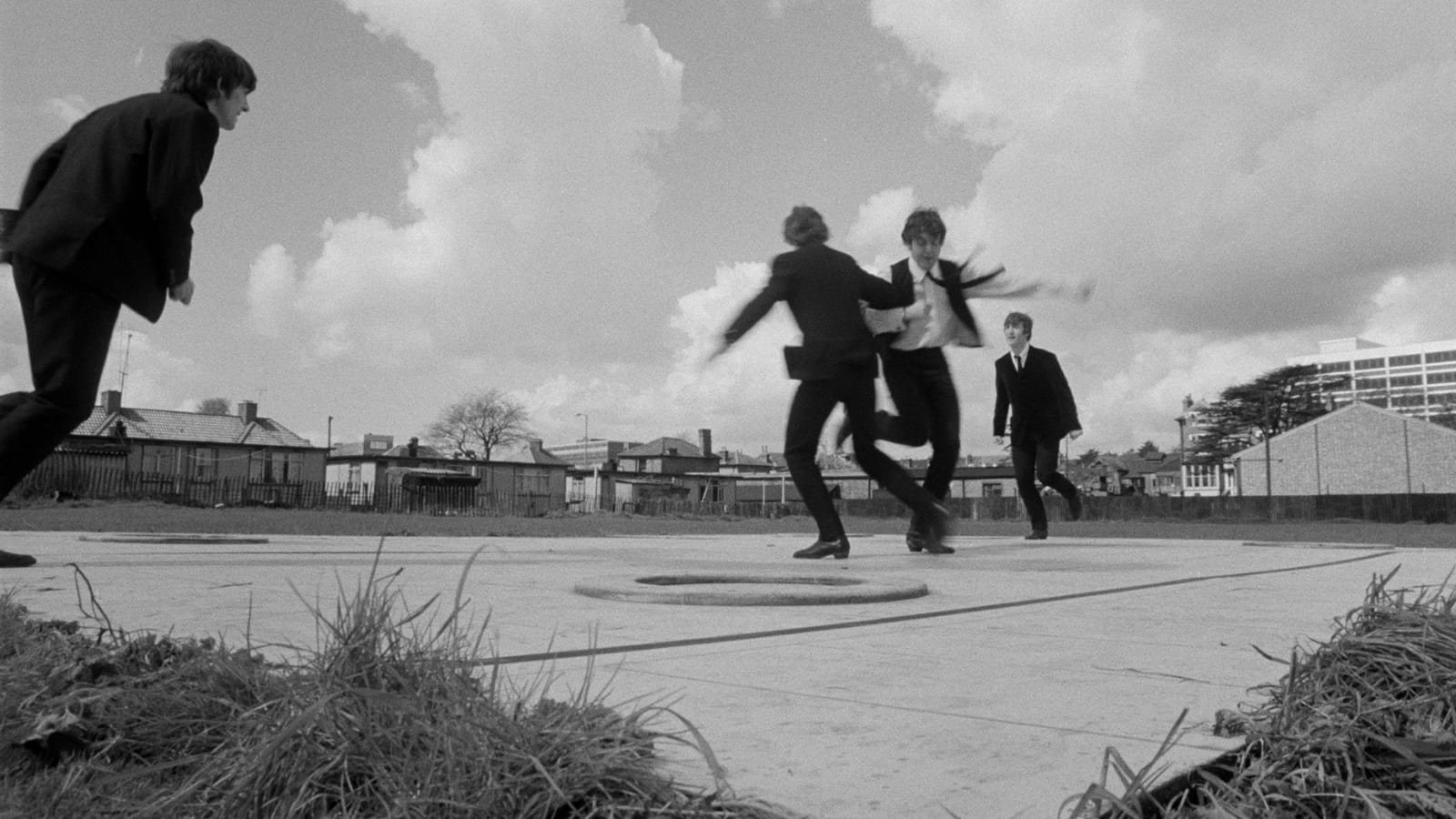
As we've done many times in Hollywood & Spine, tackling a novelization of a music-dependent film is often tricky business - doubly so when your subject is The Beatles. It's entirely plausible that the audience knew the group better than Burke, a fortysomething man tasked with adapting what could have easily been a cash-in - theoretically no better than Elvis Presley's films. With no foreknowledge of how lasting The Beatles or A Hard Day's Night remain, and a publisher likely just happy to reap the benefits (you could put anything on the pages, so long as people have the eight-page photo insert to moon over), this could've been a disaster.
Instead, A Hard Day's Night is deeply satisfying for two reasons: the insane stroke of luck in capturing the anarchic spirit of the film, and the light, almost bemused tone of the prose as the scenes are set. That first part is incredibly impressive: Alun Owen's screenplay feels indistinguishable from the group's unscripted candor - when you think of how The Beatles talk, A Hard Day's Night is nearly archetypal - and this novelization suggests that it was just about all on the page, down to every "gear" and "grotty."
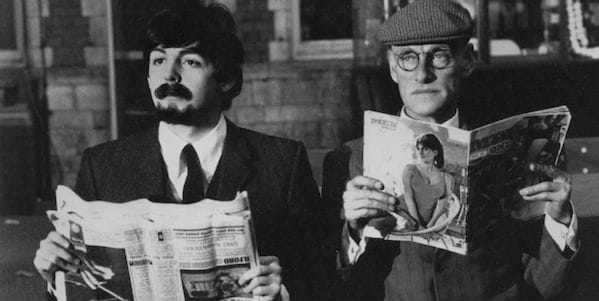
But turning script into prose is only one job. Burke's narration reads as close as any grown-up could then get to the fan fiction of today: celebrating in The Beatles' abstract success story (told, not shown) from Liverpool to the big time and understanding that your love for them is part of that celebration. It's that deft, inviting tone that makes you calmly accept the lack of song specificity, carefully avoided lest Burke make fools out of the whole operation. (About the only song mentioned by name is, in fact, one of the new songs heard in the movie: "Can't Buy Me Love," which the group plays early in the book to distract a horde of fans early on in their getaway by train.)
He's not trying to be factual in his writing - it's not a biography - but his flourishes hint that there indeed might be something more to these teen sensations. Consider this passage when, while cooped up in a hotel, John hears an idea of Paul's on the piano and sets to fleshing it out some more:
They took their song-writing seriously. As a matter of fact, they and the other two boys were serious about a lot of things in life. The constant kidding, the act of not taking anything seriously - that was to let off tension, and to protect themselves from getting too involved with people and getting hurt by it.
Or this passage, when road manager Norm (the film's not-quite-Epstein-Aspinall-Evans combo) attempts to wrangle the lads backstage after a bit of banter, including that famous scene when Lennon convinces an actress that he's not at all who she thinks he is:
Norm closed his eyes and fought for strength to carry on. Sometimes he liked to persuade himself that he ran these tours, but he knew better. Nobody could lead The Beatles around by their noses. They were hard workers, and you could count on them to put more into what they did than any other performers Norm had met. But they went at things their own way, with their own personal style and at their own jet-age tempo. They were so full of life that if you worked with them, you were lucky if you could just hold on till they decided to take a breather. [...]
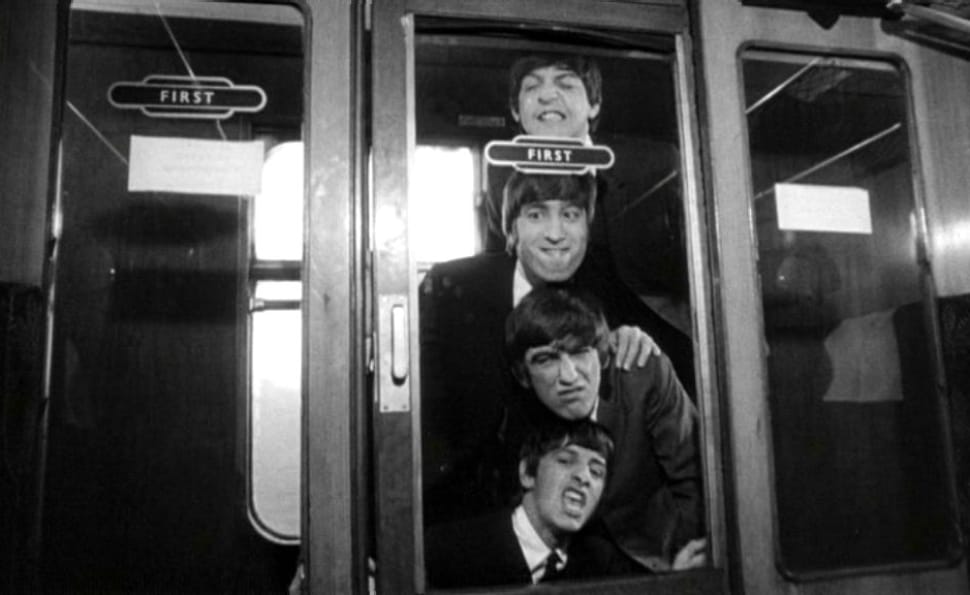
Whether Burke knew we'd still be talking about The Beatles as reverently in six decades' time, he wrote about them as such, and in turn kept the myth and the elevation alive. And his straightforward adaptation of the screenplay paints mostly the same sympathetic picture to each member that the film does. John is caustic and cool, Paul bright and charming, George quiet and incisive, and Ringo silly and droll. (The main exception here: Burke's unfortunate preoccupation with Ringo's nose size and seemingly asynchronous appearance to his perhaps more conventionally attractive compatriots. Ouch!)
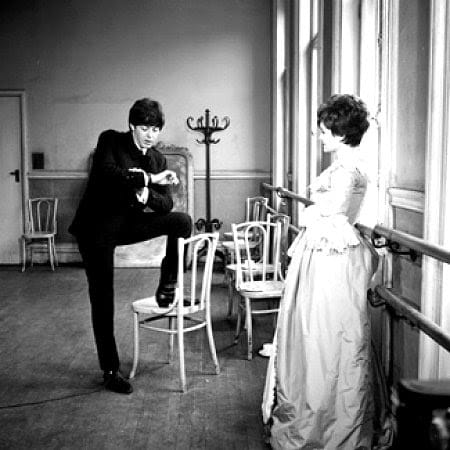
The cutting room floor: There's a handful of scenes in the book that didn't make it into the picture. Besides the aforementioned spontaneous "Can't Buy Me Love" performance - a distraction before the band boards the train (I mean, can you imagine how boring it would be to read about running?), there's a brief distraction with Paul's "very clean" grandfather, who meets and spontaneously proposes to an old woman on the train, though the misadventure results in the group getting locked in a cargo car (where the lads sing "I Should Have Known Better" in the final film). Elsewhere, Ringo has a more fleshed-out encounter with some cafe staff members before his climactic arrest, and - perhaps most notably - Paul has a heart-to-heart with an actress. (This was filmed but only photographs like the one you see above survive.)
The last word: By treating the source material with more respect than was probably needed at the time - and at least as much respect as they deserve now - this is a novelization that'll make you feel alright.
